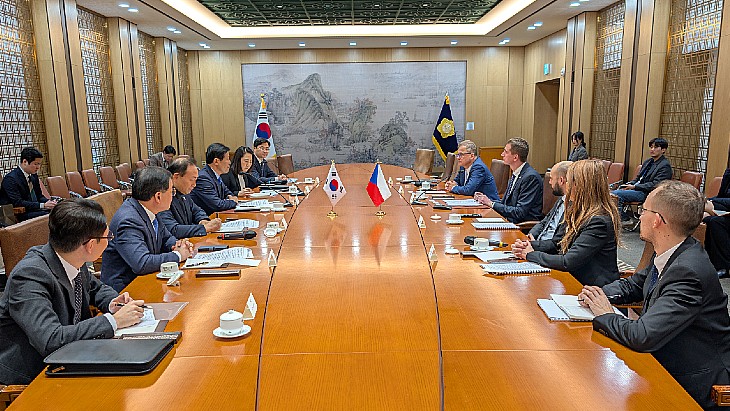The minister met with the acting President and Prime Minister of South Korea, Choi Sang-mok, in Seoul on Tuesday and said: "We discussed, in addition to the completion of Dukovany and the involvement of Czech industry, further cooperation between our countries, not only in terms of further investments and deepening trade relations, but also, for example, in the field of research, development and innovation."
He also held a meeting with the South Korean opposition, who "confirmed to me at the meeting that it fully supports the project for new nuclear sources and that they are ready to develop trade and cultural relations between the Czech Republic and South Korea".
"The selection of KHNP (Korea Hydro & Nuclear Power) as the preferred supplier for the new nuclear units in Dukovany opens up new possibilities for Czech-Korean economic and technological cooperation. In Korea, we confirmed that it is our priority to ensure that this cooperation goes beyond the field of nuclear energy and includes research, development, small modular reactors, hydrogen technologies, electromobility, battery systems, semiconductors or education," said Vlček.
Background
The Czech Republic currently gets about one-third of its electricity from the four VVER-440 units at Dukovany, which began operating between 1985 and 1987, and the two VVER-1000 units in operation at Temelín, which came into operation in 2000 and 2002.
In October 2023, Westinghouse, EDF and KHNP submitted binding bids for a fifth unit at the Dukovany nuclear power plant, and non-binding offers for up to three more units - another one at Dukovany and two at the Temelin nuclear power plant. Westinghouse was proposing its AP1000, EDF was proposing its EPR1200 reactor, KHNP was proposing its APR1000. But in February the Czech government announced it was changing the tender to be binding offers for four new units, with Westinghouse not included because it "did not meet the necessary conditions".
Prime Minister Petr Fiala explained at the time that the decision to switch to binding offers for all four units was the result of the original tender suggesting that contracting for four units, rather than having separate processes, could have a 25% benefit in terms of costs.
In July, he announced KHNP as the preferred bidder, with contract negotiations to begin with the aim of signing contracts for the initial unit by the end of March 2025 - the target for test operation of the first new unit is 2036 with commercial operation in 2038. He said the winning tender "based on the evaluation of experts, offered better conditions in most of the evaluated criteria, including the price". The KHNP bid was for a cost of around CZK200 billion (USD8.6 billion) per unit, if two units were contracted.
Last month Westinghouse and KHNP and KEPCO reached an agreement on their long-running intellectual property dispute and to collaborate on the deployment of new nuclear reactors around the world.















